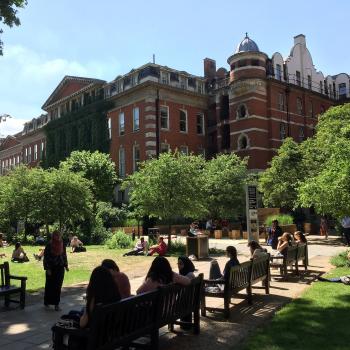
On the website of the Interpreter Foundation:
“Come, Follow Me New Testament Lesson 8: February 18–24 Matthew 5; Luke 6 “Blessed Are Ye””
***
A curious account:
“An Example of the Folly of “Sign-Seeking” from Early Welsh Latter-day Saint History”
***
As I say, I read an article on Friday by the late Dallas Willard and Brandon Rickabaugh, the first of whom taught in the Department of Philosophy at the University of Southern California and the second of whom teaches in the Department of Philosophy at Baylor University. The article is: Dallas Willard and Brandon Rickabaugh, “Intentionality contra Physicalism: On the Mind’s Independence from the Body,” Philosophia Christi 20/2 (2018): 497-515.
Before leaving it altogether for purposes of this blog, I want to share a passage from its conclusion with which I wholeheartedly agree:
[W]e make much of respecting and loving and valuing persons. We say, along with many others, that life cannot go on in this earth unless we learn to treasure persons. We submit that a part of our problem in this respect derives from an implicit view of what a human being is. If a human being is only an ambulatory, oblong piece of meat and bone, a dense electron cloud, or a natural feedback mechanism of great complexity, you can talk of respect, admiration, love for such a thing all you wish, but the reality of such emotions and maturations will come forth only if you succeed in thinking of human being as something a great deal more than just that. We live in a time where deep uncertainties about what we are drive private and political dynamics for how we live and love others. We think it has yet to be proven that any humanly desirable society can exist without being based on what could best be called a spiritualistic view of the human person. (515)
As cautionary examples of previous attempts at building societies that explicitly and deliberately reject spiritual conceptions of human nature, we might mention Revolutionary France, Lenin and Stalin’s Soviet Union, Nazi Germany, Mao’s China, Communist North Viet Nam, Pol Pot’s Cambodia, Fidel Castro’s Cuba, Enver Hoxha’s Albania, and the North Korea of the Kims. In fiction, such societies have been explored — without very reassuring results — in such dystopian fiction as George Orwell’s 1984 and Aldous Huxley’s Brave New World.
Posted from Richmond, Virginia












